Feature Image via Alex Hollinghead
One of the most difficult things about being a queer organizer from the Southeastern United States is the intricate balancing act I find myself doing each time I try to explain what it’s like to live and organize here. From my home state of Alabama, I find myself battling straight Alabamians and their assumptions about queer people just as much as I find myself battling queer non-southerners and their assumptions about the deep south.
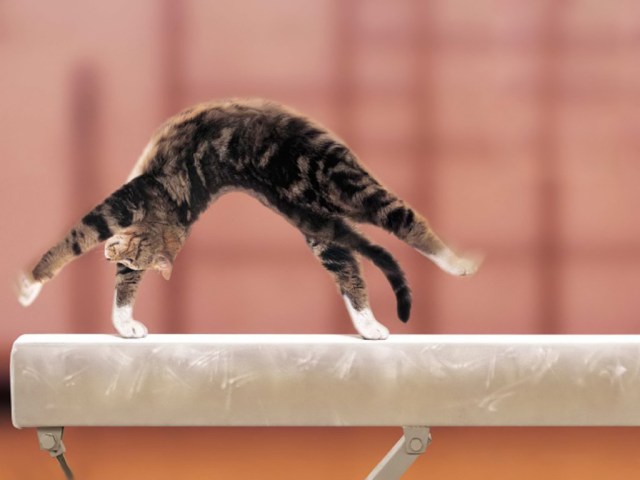
via vaysburd on livejournal
Yes, this is the Bible Belt.
Yes, there are queer-affirming congregations.
Yes, there are rebel flags on the backs of trucks.
Yes, there are pride flags on the streets in June.
No, you need not be surprised that people applauded for a gay marriage proposal at a Waffle House in Alabama.
No, you need not be surprised that my best friend got called a purple-haired faggot at a Waffle House in Alabama.
Yes, someone thought this shirt would be cute to wear to Alabama football games.
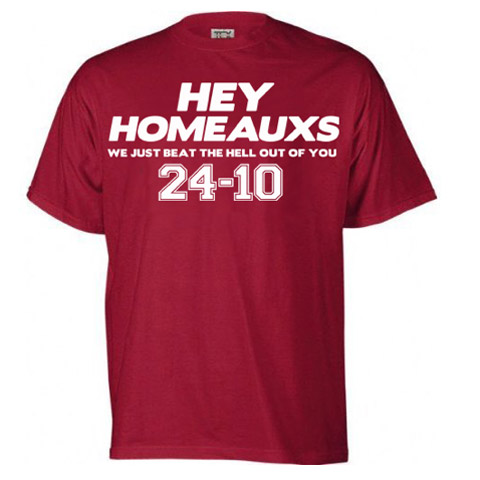
Yes, most people think this one is much cuter.
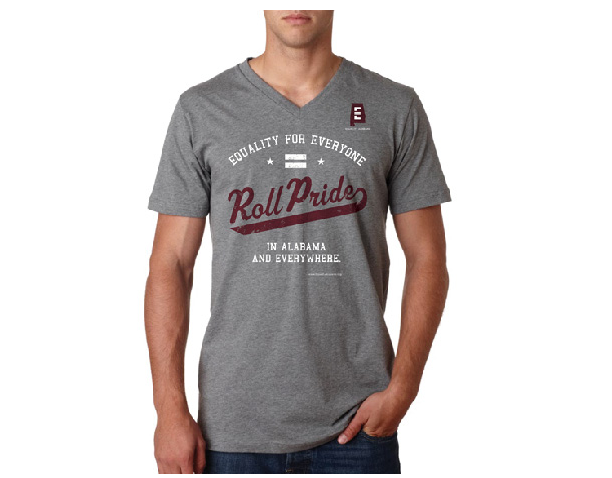
Yes, it’s still in our law books that sexual education teachers are required to emphasize that “homosexuality is not a lifestyle acceptable to the general public and that homosexual conduct is a criminal offense.”
Yes, it’s still the case that badass youth advocates and an openly gay legislator are willing to be highly visible to change that law.
Yes, people don’t expect marriage equality anytime soon. Yes, there are still married queer Alabamians. Yes, there are also anti-assimilationist queer Alabamians who don’t want to be married. Yes, they are friends. Yes, they all wear shoes.
This is the never-ending balance game. On the one hand, you want people to understand clearly that the overall culture is highly conservative, oppressive, that legal protections are beyond lacking etc… but on the other hand you’re obsessively proud of the collaborative, progressive, even radical LGBTQ+ community that exists here despite never really being invited in on the national conversations. It’s like, “Yes we have queer college groups, yes we have Safe Schools Coalitions, yes we have PFLAG chapters, yes we have LGBTQ film festivals and photography exhibits. Why do you think we don’t? I mean, I know why you don’t… but why don’t you?” You know? Balance.
One of the most transformative experiences I’ve had as a queer southerner was the opportunity to be one of a handful of coordinators for the Southeastern LGBTQ+ Student Conference.
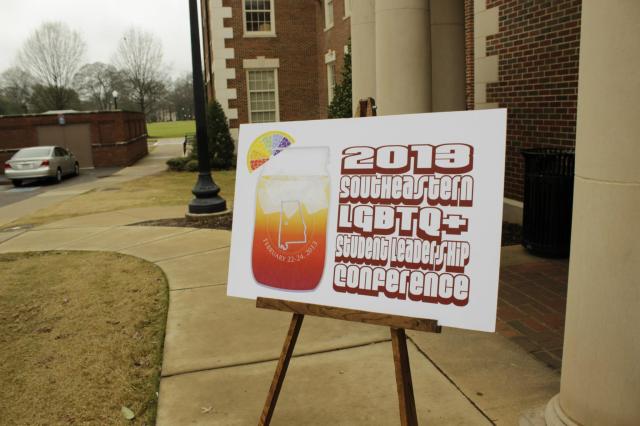
The conference will reach its seventh consecutive year this February 21st-23rd at the University of Alabama in Tuscaloosa, Alabama and it is a perfect example of how to play with this balancing game in a way that empowers queer students from high schools and colleges across the deep south.
As a student organizer, I got emails all the time from prospective students and their parents who were surprised that our high schools, colleges, and universities in the deep south even had LGBTQ student groups so it was a distinct pleasure to melt their faces off with the news that we absolutely do have them and they all get together to do some intensely progressive stuff.
The conference is completely student-run and travels to different university hosts in the region each year. It’s also completely free for college and high school students to attend. Call it Southern hospitality. We called it annoyance at the fact that people would ask us unironically if we were going to go to Creating Change next door in Georgia when that cost hundreds of dollars and we were broke college kids. Seriously?
As you might imagine, there’s not a whole lot of proactive support from university administrations for such an endeavor. A lot of our Southern schools don’t have diversity/multicultural centers and thus the weight of LGBTQ organizing is placed fully on the students and a handful of their supportive faculty and staff.
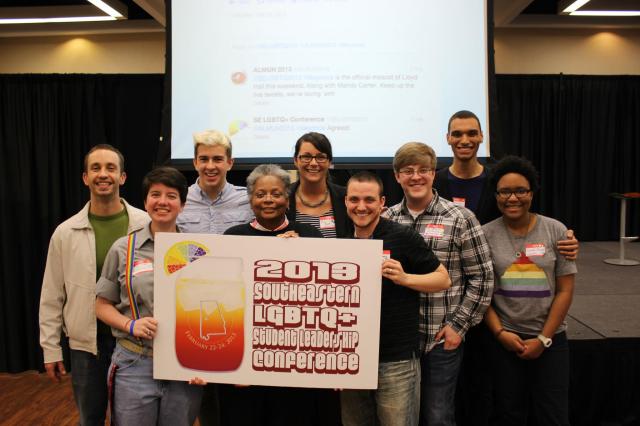
This is a blessing and a curse. On one side, it meant complete and total agency. As students, we were free to set the agenda, approve workshops, invite who we wanted… to make it as queer and radical as we could and be virtually beholden to no one. On the other side it meant we were totally on our own to make it happen. A small group of around 10 of us, all students, handling everything: scheduling, logistics, coding the website, designing the programs, manning the Facebook page and Twitter account, putting credit cards on the line with fingers crossed that we’d be reimbursed – meanwhile trying not to fail classes/get harassed while doing the queer organizing work that we so desperately needed. Simultaneously, we had to prove to conservative administrations and apathetic queers alike that we needed it.
As a focus of the conference, we set out to be highly intentional about the kinds of conversations we wanted to spend our time having. We didn’t want people from queer national organizations to fly in, tell us how backwards the deep South is and what we’re doing wrong, then fly back to their comfortable “more progressive” hometowns. That sounds obvious as I write it, but you would be surprised (or maybe you wouldn’t) by how much people love telling the South the we suck at things. Queer Southerners included.
To understand, you have to acknowledge the self-defeatist mentalities that young southern queers often find themselves battling. We have a tendency toward internalized struggles not only based in reconciling our identities but also our geography. “I’ll never be truly happy here. I’ll never be truly safe here. I’ll never find community here. I have got to get out.” These are thoughts that it’s pretty safe to say the majority of queer southern and rural kids have had at some point. The narratives of fleeing the South for a Northern queer mecca and ideas that people from those cities are the ones who can lead the South of its backwards ways are pervasive.
Not helpful. Instead, we wanted to get queer youth in contact with the people and organizations proudly doing LGBTQ advocacy work down the street from them. Folks like The Southern Poverty Law Center, Southerners on New Ground, the National Black Justice Coalition, Alabama Safe Schools Coalition etc.
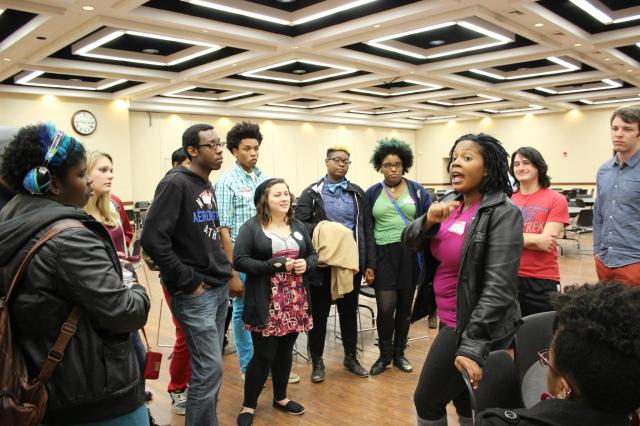
We wanted to break the habit of treating queer Southern organizing like it’s some new fresh thing we got from out of town. We didn’t want to act like we were reinventing the wheel. We wanted to stop pretending like we needed to have the most basic of conversations around LGBTQ identity (“This is a trans* person”) when we were totally down to handle complexity (“This is transmisogyny”).
We said yes to a workshop called “Lady Macbeth’s Stone Butch Blues: Queering Literary Canon.” Yes to “Examining Intimate Partner Violence in the LGBTQ+ Community.” Yes to “Life After Transition.” Yes to “Pan-/Poly-/Bi- sexual and romantic Identities Breakout Discussion.”
We got chills and teary eyes in the first session when leaders from the Southern based LGBTQ advocacy organizations we invited told us simply that we didn’t have to leave the South. I can’t remember ever having heard anyone tell me that so plainly before.
Meanwhile the emails still come in asking, “Do y’all even have gay people down there?”
In short, yes.
And we want to break the assumption that the South has to play catch up to the national movements for queer rights and set forth the idea that we could lead occasionally if we want to.
Why not? We’re kind of obsessed with being champions down here.
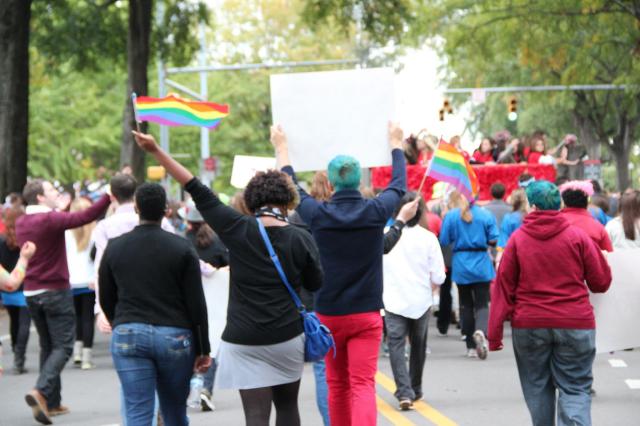
Special Note: Autostraddle’s “First Person” column exists for individual queer ladies to tell their own personal stories and share compelling experiences. These personal essays do not necessarily reflect the ideals of Autostraddle or its editors, nor do any First Person writers intend to speak on behalf of anyone other than themselves. First Person writers are simply speaking honestly from their own hearts.
Lauren is proud Alabamian aspiring filmmaker who is learning to stop saying “aspiring” and just say “filmmaker.” A recent graduate with a degrees in film, Tegan and Sara, and t-shirt collecting, she spent all of her college time organizing the queers down at the University of Alabama and turning every class assignment into a chance to talk about southern queer black woman identity. She likes football more now that she’s graduated.








Comments
heard that! being from LSU this article almost exactly mirrors our experiences in the Baton Rouge area. We even organize a Queer Conference too! Sometimes it feels like being a small rainbow-colored fish in a shark tank but just know we’re fighting too on the other side of mississippi! (Also, i remember that shirt. ugh.)
“rainbow-colored fish in a shark tank” is a beautiful metaphor. but yeah, hey! i know your conference! talked to some of the organizers once upon a time. i never got to go, but it was cool to admire from afar. i love how connected everyone in the region has gotten, really just over the past few years. it’s like we’re getting a really strong network up to share ideas and stories. i love it.
I am glad you wrote this. I live in Mobile, Al.
I am constantly navigating the line between defending the South for the good things that are really going on and working to change the South for the horrible things that are really going on.
There is a tendency for some people to assume a homogenized Southern culture of bigotry, ignoring the huge positive changes that Southern people have enacted at the national level, historically on up to today.
Right? it especially hurts when those assumptions are being made by queer southerners themselves. you understand where they’re coming from, but ti just doesn’t help anyone. do you see that happening too?
I do. There seems to be a lot of apathy and/or fear among queerfolk in this area. People are really excited to come here and find a community (there is a rather large queer population here), but they are far less excited to step outside of these safe/comfortable spaces and be activists. There is a lot of pain in the South and it is hard to motivate through.
YES YES YES. every time autostraddle has a post on the south my heart grows 10 sizes
Thanks for writing this and for fighting for the South. As a queer who was born in Sugar Land, Texas but now lives in Boston it’s important to inform others of that the spectrum of reaction that varies from hate to tolerance to acceptance to support. And that all of those reactions can be found in any geographical locale, despite the media coverage tending to play into all the common tropes. Knowing the struggles I had growing up feeling so isolated and alone, makes it all the more important that we keep up the fight wherever we are. Even moreso in the areas where resistance has proven to be greater. So thank you for doing what you do. We all gain strength from the battles you fight.
As a Southerner who has that urge, to flee North at the first sight of college scholarships, these posts always draw me in and grate upon my conscious. I read this and admire your courage, and strength to stay in a place where it seems hopeless to be non-heterosexual/non-cisgendered and be that change that you want to see in this segment of the United States. These posts give me a moment, to reconsider my choices of leaving and of being closeted at the workplace, due to the lack of anti-discrimination laws in Florida or to be a stronger activist in the time that I am here.
totally down to handle complexity. i feel you on that. the conference sounds amazing. that last line though ROLL TIDE.
Roll Tide. We ain’t never been nothing but a winner.
And yeah the conference is greaaaaat. *highly biased* – if you know college and high school folks who should go, let ’em know! oh likewise if you know anybody who should present or workshop or lecture at it, the call for proposals is up too! The more complex the better :) http://selgbtqconference.org/proposals
Laaaaaaurennnnnn. This was great and I have got to stop reading autostraddle in class.
No way, MG. Read Autostraddle in all the classes. Thanks!
this is so heartening. everything about this – the balance game, the student-supported effort, setting the agenda for complex discussions – is how i want to participate in LGBTQ+ organizing in my own society. the queer diaspora is large and growing, but i hope that even as more people find spaces that are safer and more welcoming for them and their families, others find enough support and community to open and sustain exciting little pockets of queerness. i also appreciate the scare quotes for “progressive” because while i like certain cultural attitudes better than others, seeing things in a linear backward–>progressive narrative isn’t always helpful. there’s more than one way to write queer history and it need not be dictated by other (successful) stories.
This, so much “we want to break the habit of treating queer Southern organizing like it’s some fresh new thing we got from out of town.” Living in NOLA as part of a huge young white transplant population, that is constantly the attitude – well people before weren’t doing anything to address these issues, constantly ignoring the AMAZING bad-ass organizing that so many people (especially people of color) have been doing in NOLA for so long.
In New Orleans/Louisiana: Women with a Vision, Women’s Health and Justice Initiative (affiliated with INCITE!), BreakOut!, Queer-spiracy, GetEqual, among others!
I went to college in Georgia in 1999, where there was one Gay/Straight Alliance on campus. We didn’t know what we were doing, or how we should reach out to people, but we knew it was important. I went from member to secretary in the first day. I then turned into president my second year. It was terrifying but I also met some of the best people, and had some of the best experiences of my college life.
I grew up in Mississippi. I live in northern Ohio. I’ll get in moods where all I can think of is how awful the South is and I’ll preach to anyone and everyone about how much I hate it, but we’re also amazing and when I hear other people hating on us I feel like they can just go stuff their Southern-phobia up their ass.
I loved this article! I live in Portland, Oregon but am from Mobile, Alabama. In Portland, I often hear about how homophobic the South is from folks who have never even been there. Mainly what I hear from people is a fear about visiting the South as a visibly queer person. If I am honest there are many ways that living in the South was difficult for me but I suspect there would have been some difficulty living as a queer person in rural Kansas too. However, the perception of a Southern monolithic culture of bigotry negates the reality that there are amazing people who are actively shaping the policy and culture there. Articles like this are so helpful because they bring much needed attention to the cultural bias against Southerners about LGBTQI issues. Next time the issue comes up I am going to direct them to this article. Thanks Lauren!
awesome! i live just a hop skip and a jump away in mississippi, so that conference sounds especially relevant to my interests. queering literary canon? perfect.
Hi! I’m one of the organizers of this year’s conference and you should totally attend! I’m also an English major lucky enough to take Dr. Jennifer Drouin (http://bama.ua.edu/~jsdrouin/bio.html) who ran the session on queering the literary canon. Her publications are great; her classes even more so. It’s a wonderful experience having a professor who’s heavily invested in queer things and not just willing to let you make class discussion queer but actively frames it that way.
This was so great Lauren, I love your writing style and I learn so much from the things you write about and so much of this resonated with me even though we come from opposite ends of the globe. The work you do is amazing. I don’t have anything to add that everyone in this comments section hasn’t already, but I just wanna say I really appreciate this part:
“To understand, you have to acknowledge the self-defeatist mentalities that young southern queers often find themselves battling. We have a tendency toward internalized struggles not only based in reconciling our identities but also our geography. “I’ll never be truly happy here. I’ll never be truly safe here. I’ll never find community here. I have got to get out.””
I love what you wrote. I’m the mother of a gay son who is awesome. But that’s not why I love what you wrote, or at least not the main reason why. It’s because of how eloquently you talk about the balancing act. I think most southerners feel that pressure no matter who they are but especially for anyone who is not a conservative. As a liberal, I feel the exact same pressure that comes with that balancing act though of course not to the degree that you must encounter. Yes, it’s true, there are some terrible bigots and a lot of oppression that seems to be if not more prevalent, at least more vociferous in the south than in other parts of the country. But then there are the brave ones who are in a minority, who are ‘other’ and they, like you, are all the braver for wanting to acknowledge, face and hopefully change what to us is home. Kudos to you.